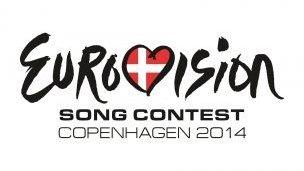Eurovision announces rule changes
- Published

Next year's Eurovision Song Contest will be held in Copenhagen, Denmark
Eurovision organisers have announced changes to the song contest's jury rules, amid allegations of bribery.
From next year, the names of each country's jury will be revealed ahead of the competition in an effort to increase openness and accountability.
For the first time, individual juror scores will also be published immediately after the final.
The changes come after it was alleged votes had been bought for the Azeri contestant at this year's contest.
Previously, the identity of jury members - whose votes account for 50% of the points each country awards it competitors - was not disclosed until after the final.
To increase diversity, music industry professionals can now only take a seat on the jury if they have not participated during the previous two editions of the contest.
"Tighter rules and increased openness are important for the Eurovision Song Contest to build on its success," Jon Ola Sand, the executive supervisor of the contest, said, external.
"We want to make sure participants, viewers and fans know that we have done, and will always do, our utmost to secure a fair result.
"We believe in the independence of every jury member [and] I believe the fact their votes are on display will help them vote independently."
'End speculations'
Organisers have been looking into recent claims that Azerbaijan - which came second this year - offered money to other countries in exchange for points.

Emmelie de Forest won the contest for Denmark this year
Mr Sands said the results of their investigation would take time, as they were "doing this very thoroughly".
"It`s important to find who is behind the alleged attempt, and if we find any wrongdoing that originates from a participating broadcaster, the Reference Group and the TV Committee will impose sanctions according to the rules of the Eurovision Song Contest," he said.
"We want to first put an end to these speculations, and clamp down on attempts to unfairly influence the voting."
Last week, Croatia announced it would be withdrawing from next year's contest, citing financial reasons. The country has not qualified for the final since 2009.
It became the sixth country to confirm it will not participate in 2014, along with Andorra, Luxembourg, Monaco, Morocco and Slovakia. Some of those nations have not taken part for several years.
Meanwhile Turkey - which snubbed the contest this year citing dissatisfaction with the rules - has created its own rival to Eurovision.
Turkvision will see 20 countries and autonomous regions populated with Turkic minorities participate in the yearly event, the first of which will be held in Eskisehir this December.
Next year's Eurovision Song Contest will be held in Copenhagen, Denmark, with the final held on 10 May.
- Published22 May 2013
- Published20 May 2013
- Published19 May 2013